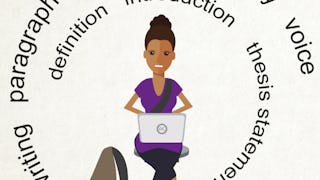Der frühzeitige Erwerb guter akademischer Forschungs- und Schreibfähigkeiten ist für Ihren Erfolg sowohl an der Universität als auch im Berufsleben unerlässlich.
Dieser Kurs zielt darauf ab: - Ihnen ein Verständnis für die Konventionen des akademischen Schreibens in englischer Sprache zu vermitteln und Ihnen die Bestandteile und Vorteile des so genannten "process writing" zu vermitteln. - ihnen dabei zu helfen, Ihren eigenen "Werkzeugkasten" an akademischen Schreibfähigkeiten zusammenzustellen, sowie Ihnen die Möglichkeit zu geben, diese Werkzeuge auszuprobieren und über Ihre eigene Entwicklung als Autor zu reflektieren. - die Reflexion über disziplinspezifische Konventionen zu fördern; obwohl der Kurs sich mit allgemeinen Fähigkeiten beschäftigt, werden Sie in der Lage sein, diese allgemeinen Fähigkeiten anzuwenden, um den besonderen Anforderungen Ihrer eigenen Disziplin gerecht zu werden. Der Kurs besteht aus vier Modulen: 1. Schreiben auf Englisch an der Universität: Eine Einführung 2. Strukturierung Ihres Textes und Vermittlung Ihrer Argumente 3. Verwendung von Quellen beim akademischen Schreiben 4. Der Werkzeugkasten des Autors: Editing and proofreading In jedem Modul finden Sie Videovorlesungen und Lektüreaufgaben sowie Aufgaben wie Quizfragen und Fragen zur Selbsteinschätzung, bei denen Sie die Möglichkeit haben, sich mit anderen Kursteilnehmern auszutauschen. Die Lernenden haben Zugang zu einem kostenlosen elektronischen Lehrbuch, das zur Ergänzung des MOOC geschrieben wurde: Writing in English at University: A Guide for Second Language Writers. Jeder, der möchte, kann nach Abschluss des gesamten Kurses, einschließlich der benoteten Aufgaben am Ende jedes Moduls, ein Abschlusszertifikat erhalten.


















